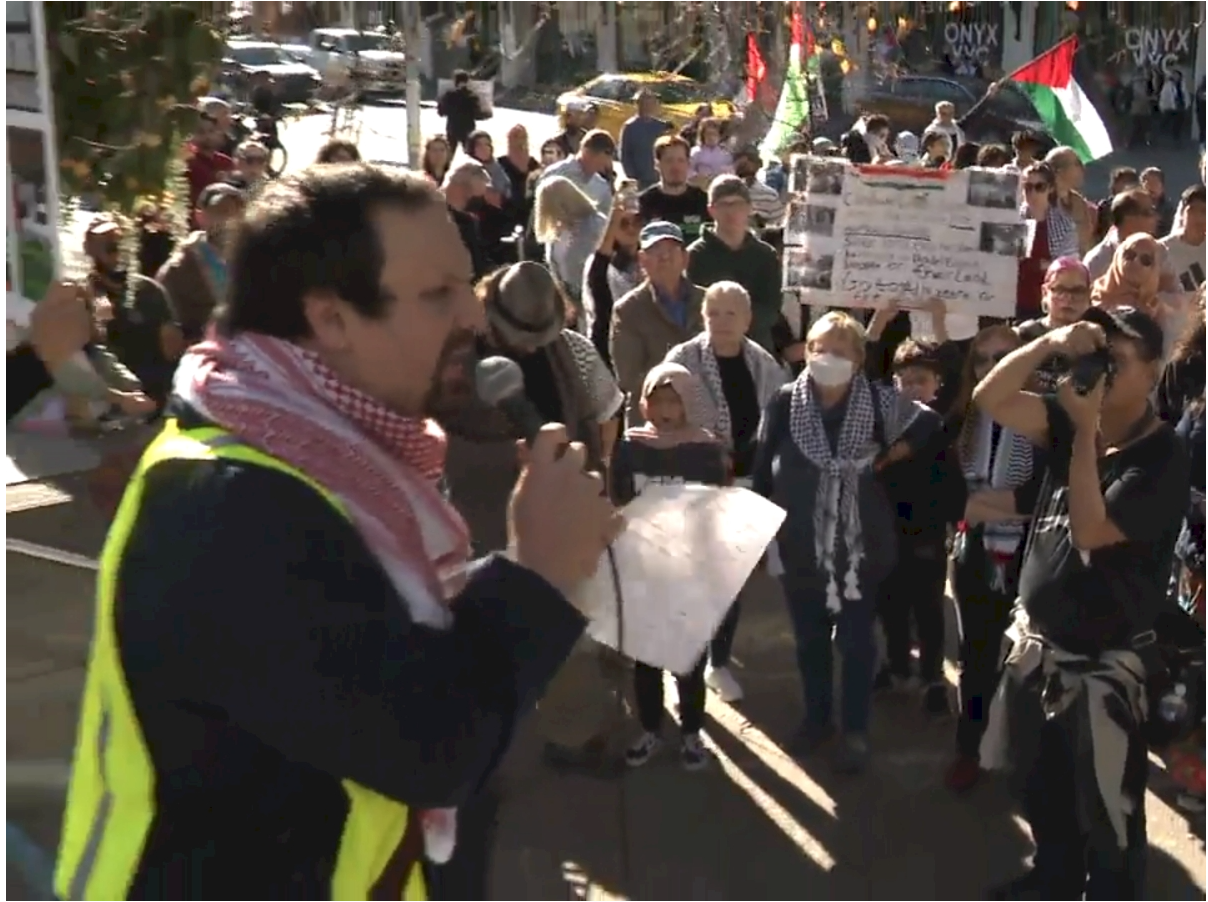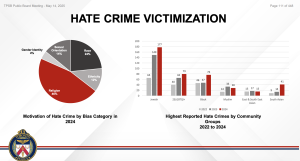A Nov. 17 decision by Alberta prosecutors to stay charges against a Calgary man for a hate-motivated disturbance after he chanted an antisemitic slogan at a pro-Palestinian rally earlier in the month has left some unanswered questions within the Canadian Jewish community.
The move by Calgary police to charge Wesam Cooley, who also goes by Wesam Khaled, with disturbing the peace with hate motivation added—instead of hate speech—had been viewed in certain legal circles as a more viable means of prosecuting and convicting those intent on inciting racism.
“It is not clear for what reasons the Crown decided to stay proceedings in the case of the Calgary demonstrator originally charged with disturbing the peace and with hateful motivation for the offence. Sometimes charges are stayed because of evidentiary issues,” said Mark Freiman, a former deputy attorney general of Ontario and currently co-chair of Centre for Israel and Jewish Affairs Legal Task Force Rapid Response Team.
Taking hateful signs, symbols and chants as well as aggressive behaviour into consideration is within both the spirit and the letter of the Criminal Code, when it comes to adding hate motivation to a crime, Freiman said.
“Where such facts are present I would hope that police in any jurisdiction would continue to consider laying precisely those charges,” Freiman
Ahead of separate Palestine and Israel demonstrations on Nov. 5, a diversity resource team and a public safety unit from the Calgary Police Service met with members of both groups to ensure the safety of the participants, the public and police officers, and to discuss some of the language and signage observed at past protests.
During the pro-Palestinian protest, Cooley took to the stage and spoke to a large crowd in attendance, according to Calgary police.
“Through amplification and a public address system, he acknowledged this conversation with police. He then proceeded to repeatedly use an antisemitic phrase while encouraging the crowd to follow along,” Calgary police said in a statement.
While the exact wording of the offending phrase was not mentioned in a police news release, media outlets have reported that it was “From the river to the sea, Palestine will be free.” Cooley, himself, confirmed this earlier in the week to Global News.
Though hate speech laws are in place in Canada under the Criminal Code, it has historically proved difficult to convict people under them. Calgary police acknowledged this when charging Cooley.
“Hate speech, as defined in the Criminal Code, is complex and several contextual factors must be considered before charges can be laid,” they said
Since Oct. 7, police in Toronto, Kingston, Ottawa and Calgary have charged at least 13 people with hate-related offences.
In an interview with The CJN Daily podcast on Nov. 13, Freiman outlined that many recent demonstrations in Canada are manifestations of hate and not classic protests where people have a political idea in mind and are showing their support.
“Peaceful assembly is protected by the Charter. On the other hand, getting together to spread and manifest hatred, and really to intimidate people, is not protected and shouldn’t be protected,” he said.
For his part, Cooley was quoted in Calgary media as saying that the phrase he used was not offensive and that he should not have been charged. Global News reported that he had attended another pro-Palestinian rally on Nov. 19.
Several people were arrested and three were charged with assaulting a police officer following that rally. As the protest came to an end, roughly 100 demonstrators separated from the main crowd and attempted to block a major road.
“Several individuals within this group were not compliant with police and despite attempted negotiations, continued to impede traffic and escalate their behaviour, with some attempting to push through a line of police officers,” a statement from Calgary police read.
On Oct. 29, police said they received reports of multiple online threats made via social media to two Jewish community organizations in Calgary. After investigating, they allege that the social media user created and sent the threats under a false name.
On Nov. 7, police charged a 25-year-old Calgary man with three counts of uttering threats. He will next appear in court on Dec. 6. Hate motivation is being investigated as a factor.
“We understand the impact these threats have to Calgarians’ sense of safety in their city and will work diligently to hold people accountable for their actions,” Insp. Keith Hurley said at the time.







